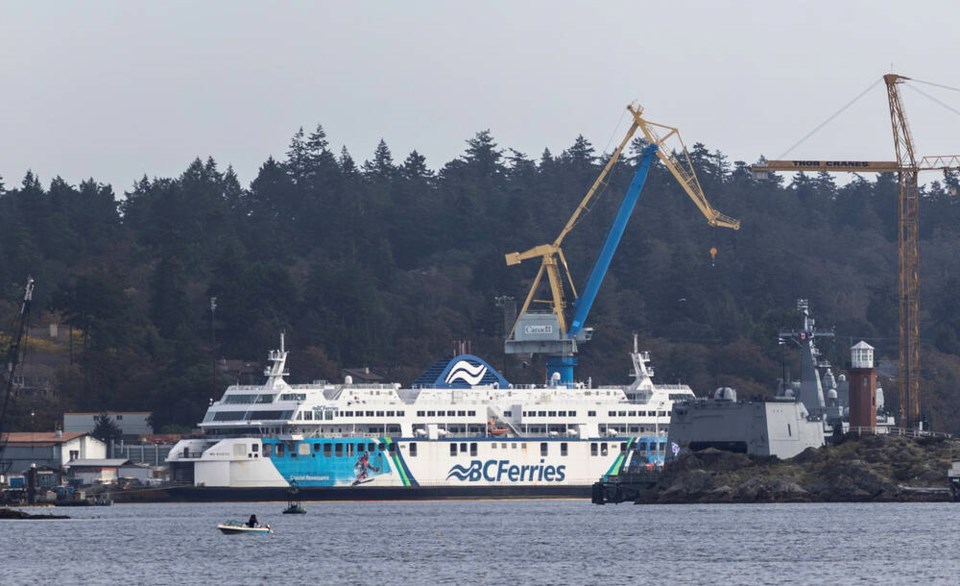B.C. Ferries is looking to upgrade its cellular network connectivity to 5G and LTE standards on its routes and at its terminals, with a focus on a network that can give priority to connectivity for its crews.
The ferry company is asking contractors to provide cost estimates on delivering LTE and 5G data coverage for crews on its routes and in terminals for two years. It is unclear if onboard connectivity will extend to the public.
Asked about whether it was the first step toward the return of onboard Wi-Fi for vessels, B.C. Ferries spokesperson Ritinder Matthew said the company is looking at the possibility of “value-added services” that would enhance passenger experience.
“We absolutely understand how important connectivity is to our passengers,” she said in a statement. “The challenge lies in finding an affordable solution that works with the unique and remote coastal geography we operate in.”
However, this bid is focused on providing internet connectivity for staff to help ferry service run smoothly, she said.
In the quotation request document, which was issued this month and closes Jan. 22, B.C. Ferries said it expects the contract to include the delivery of 150 SIM cards to its Blanshard Street headquarters.
The SIM cards have to be compatible with the company’s current fleet of SIM-card ready internet modems, which are able to connect up to 10 users at a time.
Bidders have also been asked to explain how they could configure the proposed cellular network to give priority to specific SIM cards, as well as whether providers are able to use network slicing, which can create multiple virtual network instances in a single network to support the company’s critical operations.
B.C. Ferries is asking for quotes on how much it would cost to provide wireless coverage on all of its routes, but the company is not requiring bidders to provide full coverage for all 25 routes.
“For avoidance of doubt, please make explicitly clear any areas relevant to B.C. Ferries that will not have coverage,” the document reads in part.
The company said it expects to consume between five and 10 terabytes of data per month on the cellular network.
This year, B.C. Ferries began a trial of the American telecommunications company Starlink’s satellite-based Wi-Fi service for its crews on some ships to address ongoing internet connectivity gaps.
However, the service was limited only to crews using the internet for operational needs.
B.C. Ferries vessels once had internet access for its customers on major routes between 91Ô´´ Island and the Lower Mainland but the company discontinued the service in July 2021 after passengers found it unreliable, slow and often inaccessible.
The company said the increase from an initial 40 or 50 users per route when service was introduced in 2010 to more than 900 per route caused connectivity issues.
The previous Wi-Fi service ran on a ship-to-shore wireless network radio.
It needs upgrades and the service would have to be certified under new, more strict radio frequency regulations that would end up reducing the quality of on-board Wi-Fi, the ferries service said.
B.C. Ferries currently operates 37 vessels and 47 terminals over 25 routes.
As of 2022, the company had Wi-Fi service available for customers at 21 of its terminals.
The ferry company carried 22.6 million passengers and 9.6 million vehicles during the 2024 fiscal year, the busiest year on record.
>>> To comment on this article, write a letter to the editor: [email protected]



